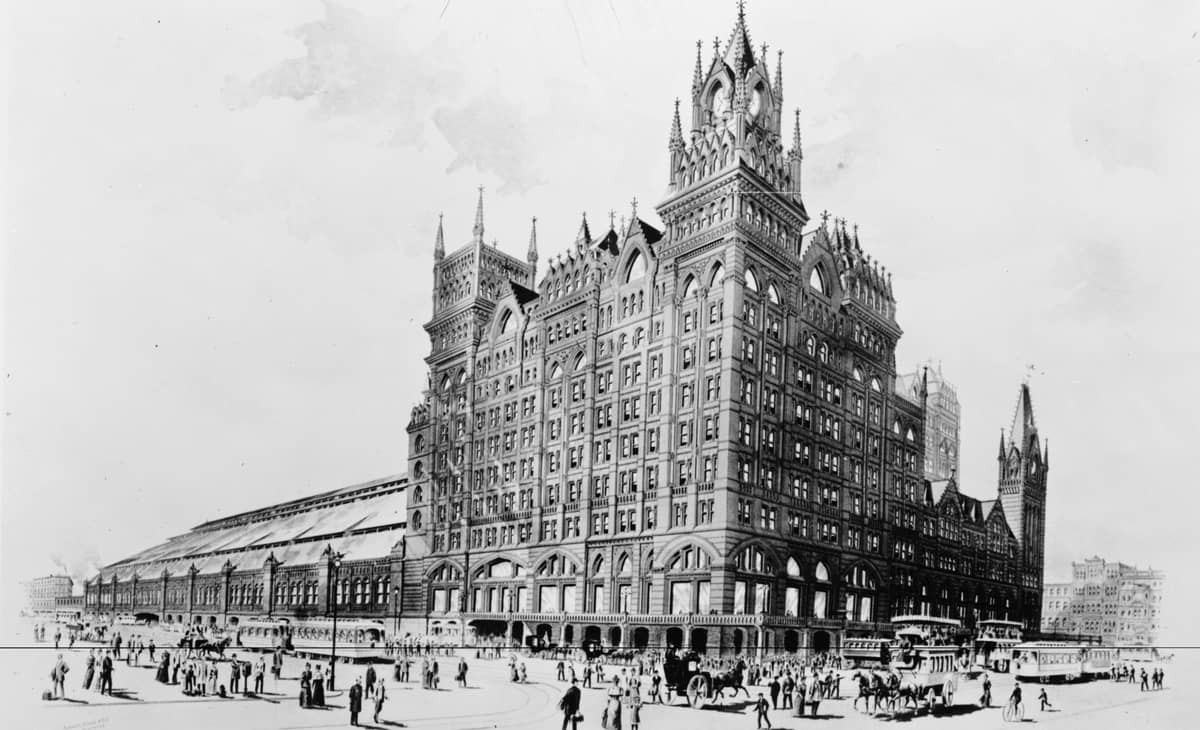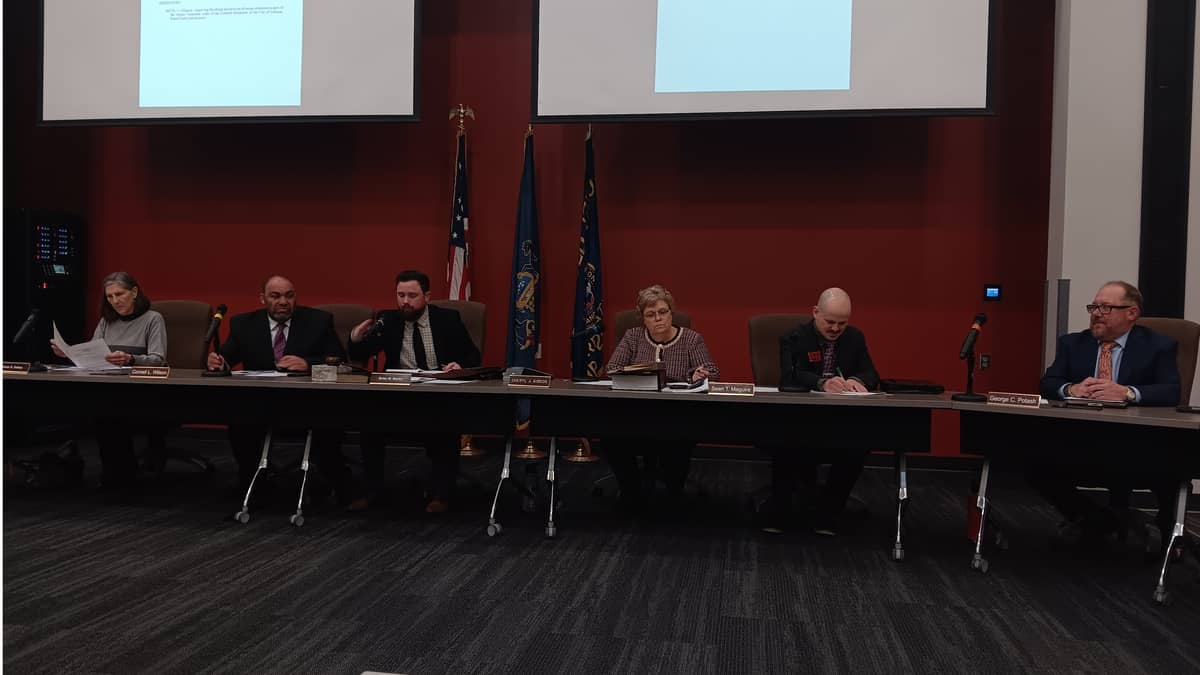Cornwall Borough resident Bruce Chadbourne moved to Cornwall Manor a few years ago after his retirement, drawn by the history of the mine and the Cornwall Iron Furnace. He has taken to writing a few historical articles, which he’s kindly shared with LebTown for our readers to enjoy in a semi-regular series titled, “Who knew?” We hope you enjoy.
Day 1 – Tuesday
At 10:30 p.m. on the night of Tuesday, July 24, 1888, Pinkerton agent “F.B.T.” stepped off the train from Philadelphia in Lebanon, Pennsylvania. At 5 p.m. earlier that afternoon, on orders from his superintendent R.J. Linden, he left the office at 45 S. Third St., proceeded up Market Street where he stopped for supper, and continued west to the Broad Street Station. He noted the ongoing construction of the new city hall in the center of the city as he crossed 15th Street. Upon entering the station, he purchased a ticket and proceeded to the upper level where he boarded the train for Lebanon. He rode the 6:25 p.m. departure across the “Chinese Wall” viaduct, crossing the Schuylkill and following the river westward to Reading, and on to Lebanon.
Francis B. Thomas, aka “F.B.T.,” investigator for the “agency that never sleeps,” walked from the Lebanon station to the Eagle Hotel on the southeast corner of 9th and Cumberland streets, where he retired for the night.

Read More: The former Eagle Hotel/Hotel Weimer was once a symbol of luxury in Lebanon
On Wednesday morning he arose at 5:30 a.m. with early daylight, had his breakfast and at 8 a.m. headed out in search of Robert H. Coleman. The manager at the Dime Savings Bank, of which Coleman was the president and director, reported that he was still at home in Cornwall, and may have worried a little when Thomas thanked him and headed back to the train station to catch the 9:30 a.m. train to Cornwall.
The name Pinkerton may not mean to most of us today what it meant to that bank manager. We think of uniformed security guards in movies involving pudgy mall cops, or the sidekick in the “Death Wish” movie franchise, or possibly the driver of an armored bank vehicle. In 1888, the Pinkerton agency was renown for working with railroads to protect their shipments and property. The president of the Philadelphia and Reading Railroad had hired the agency to investigate the labor unions in the company’s mines. An agent infiltrated the Molly Maguires, a secret society of Irish-American coal miners, leading to the downfall of the labor organization. Incidents like these inspired stories by Arthur Conan Doyle and Ian Fleming.

Pinkerton’s National Detective Agency was established in Chicago in 1850 by Allan Pinkerton. Working with the railroads and banks, his men chased the likes of Jesse James, Butch Cassidy and the Sundance Kid. Hundreds of Pinkerton detectives were called to Pittsburgh to protect Andrew Carnegie’s steel mill and strike-breakers, and were involved in other labor disputes. Allan Pinkerton established himself in 1861 in thwarting the “Baltimore Plot” to assassinate newly elected President Abraham Lincoln on his train ride to Washington to assume the presidency. Lincoln later hired Pinkerton agents for his personal security during the Civil War. Pinkerton agents, including Allan Pinkerton himself, spied for the Union Army during the war.
In 1871 Congress appropriated funds to the new Department of Justice, for the detection and prosecution of violators of federal law. The amount was insufficient to establish a new unit so the Department contracted the services of the Pinkerton National Detective Agency. This practice continued until the passage of the Anti-Pinkerton Act of 1893, which prohibited the use of such detectives, for fear that private agents would have inappropriate access to sensitive government information. By the 1890s the agency was so large, with 2,000 detectives and 30,000 reserves, that they were greater than the standing army of the United States.
In short, Pinkerton’s important legacy led to the establishment of the protective role of the Secret Service (1901) and the Federal Bureau of Investigation (1908). The common term of “private eye” for an investigator originated with the eye “that never sleeps” in the Pinkerton National Detective Agency logo.
Despite this fearful reputation, Bob Coleman was not troubled when Agent Thomas knocked on the door of the Coleman mansion in Cornwall in the middle of that Wednesday morning. For Coleman had requested their services.
Questions about this story? Suggestions for a future LebTown article? Reach our newsroom using this contact form and we’ll do our best to get back to you.

Support local journalism.
Cancel anytime.
Monthly Subscription
🌟 Annual Subscription
- Still no paywall!
- Fewer ads
- Exclusive events and emails
- All monthly benefits
- Most popular option
- Make a bigger impact
Already a member? Log in here to hide these messages
Strong communities need someone keeping an eye on local institutions. LebTown holds leaders accountable, reports on decisions affecting your taxes and schools, and ensures transparency at every level. Support this work with a monthly or annual membership, or make a one-time contribution. Cancel anytime.

























